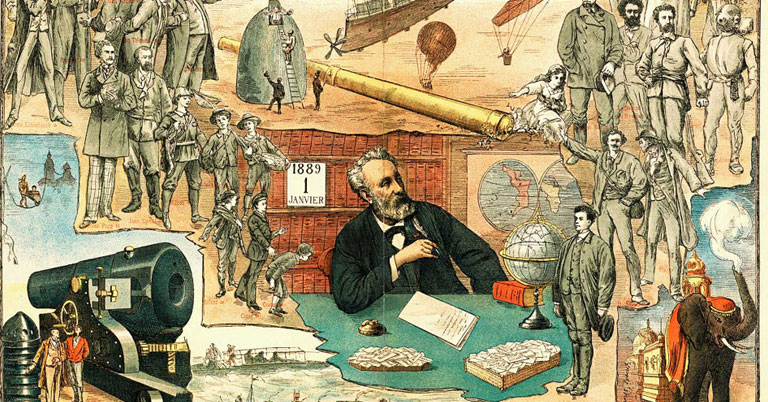
08/02/1828 – 24/03/1905
Jules Verne, born in 1828 in Nantes, France, and passed away in 1905 in Amiens, is a world-renowned French writer often considered one of the fathers of science fiction. He is famous for his adventure and speculative novels that have captivated generations of readers and inspired many authors and scientists.
Verne began his literary career by writing plays and short stories, but it was with the publication of “Five Weeks in a Balloon” in 1863 that he achieved his first major success. This novel inaugurated the “Extraordinary Voyages” series, a collection of novels exploring the boundaries of science and imagination.
Among his most famous works are “Twenty Thousand Leagues Under the Sea,” “Around the World in Eighty Days,” “Journey to the Center of the Earth,” and “From the Earth to the Moon.” These novels are remarkable for their scientific accuracy and their ability to transport readers to unknown and fascinating worlds. Verne’s iconic characters, such as Captain Nemo and Phileas Fogg, have become legendary figures in literature.
Verne is known for his descriptive and detailed style, which skillfully blends scientific facts with fiction. His works reflect his interest in geography, astronomy, geology, and other natural sciences, providing a foundation of reality while stimulating the imagination.
In addition to his novels, Jules Verne also wrote plays, essays, and travel narratives. His influence extends far beyond literature, touching the realms of cinema, television, and even science. Many inventors and explorers have cited his works as sources of inspiration for their own discoveries and innovations.
